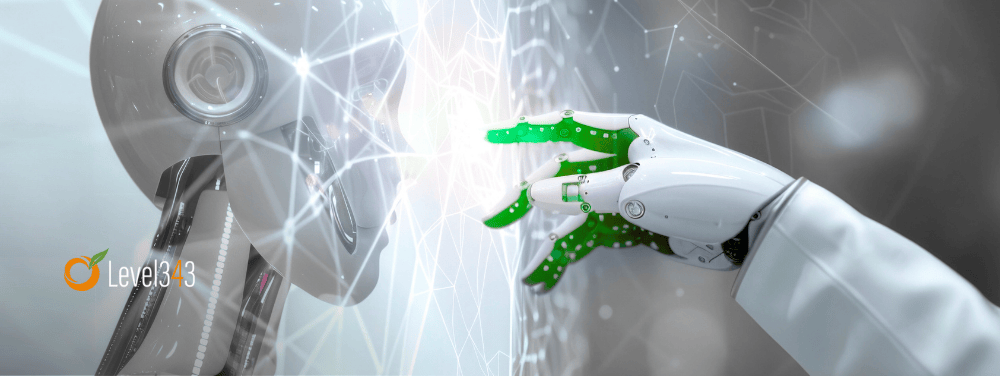Business leaders have constantly improved focus and speed by delegating work to the right people. Based on each person’s skills and strengths, you can streamline processes, achieve greater focus, and complete projects faster. Efficient marketing strategies are partly the result of effective task delegation.
Today, you can extend that mindset to software. Modern AI systems can automate well-defined, repetitive marketing tasks. This enables your team to focus on high-impact initiatives, brainstorming solutions, and other key marketing areas.
Just remember: AI excels at specific task types, not necessarily everything we humans can do. Read on to explore the benefits and best practices of incorporating AI into your delegation strategies.
Table of contents
The Role of AI in Delegation
Vendors loudly market AI as a time saver, and in many cases, they’re right. Generative and predictive tools can draft copy, propose hashtags, summarize data, and repurpose assets in seconds. Platforms like Hootsuite, Buffer, and Canva now bundle AI to help ideate, caption, hashtag, design, and schedule content across multiple channels.
Every day, people hear more and more stories about how advancements in AI can improve pretty much every aspect of their lives. Tech companies and software developers promote AI as a miracle innovation that can free up time in everyone’s personal, academic, work, and social environments. Although these promoters exaggerate some capabilities of AI systems, they’re not lying when it comes to AI performing many tasks faster and more efficiently than humans.
That said, models still hallucinate or reflect bias because they predict likely words, not the truth. You can lower these risks with retrieval, evaluation layers, and human review.
With that said, why is leveraging AI-powered tools to manage repetitive and time-consuming activities important in marketing?
Automation of Social Media Operations
With social media, you can use AI tools to analyze different datasets, come up with ideas, and draft the initial captions and visuals targeted to specific audiences and trends. AI can rapidly, within seconds, provide hashtag and keyword suggestions, predict optimal post times, and more.
You can also quickly modify existing advertising content that you’re consistently using for the brand across not only social media posts but also your website and in banner, print, or television advertisements. You can also use AI to add or remove details that reflect real-time changes and trends that impact your business and target audience.
Streamlined Content Repurposing and Scheduling
AI tools can reduce the workload for repurposing assets with different types of content and lining up posts during content creation. Many platforms now help you draft captions, resize or rewrite content for each channel, and queue everything in advance.
Instead of taking time to review data from multiple sources to build a content strategy, social listening and analytics platforms like Brandwatch and Sprinklr are ready to help your content marketing succeed. They use AI to parse trends, sentiment, and volume so you don’t have to sift through everything manually. You still need a human to double-check accuracy, tone, and context, though.
Marketing specialists can also preschedule specific tasks to occur at specific times of the day, week, or month. For example, you can schedule new content to various social media channels and accounts. You can identify relevant content on video platforms or auto post topic-specific prewritten responses to consumer feedback and conversations on marketplace and review websites.
Workflow and Progress Tracking Management
Leadership can use AI to pull activity data from project tools, flag bottlenecks, and draft status summaries. This cuts (although it doesn’t eliminate) the time they spend checking progress.
Instead of manually chasing updates, let AI compile dashboards and reports on individual and team milestones and suggest workflow tweaks. Managers still need to review the output for context, accuracy, and legal/privacy compliance, then decide which feedback to act on so changes happen quickly and with minimal disruption. However, you can use this constructive feedback to implement immediate, real-time changes that bring about positive results.
Benefits of Delegating to AI
AI tools help free up time for team members to focus on high-value tasks. Once aligned for specific types of output, these tools offer consistency and efficiency by reducing the human error that often occurs when people grow bored, irritable, and tired with repetitive tasks.
By offloading these mundane tasks to AI systems, you can improve productivity by empowering team members. Workers who may feel unappreciated when forced to perform repetitive tasks often feel more loyal and trusted when given tasks that require creativity, problem-solving, and unique, individual-specific skills.
Best Practices for Delegation Strategies
So, how do you make delegating tasks to AI work?
Start with a task inventory.
The first and best practice is knowing how to use AI systems properly. Initially, delegating tasks effectively requires that you identify processes that you can and should delegate, and set clear automated task goals. Tag items as “automate,” “assist,” or “keep human.”
Keep the humans in the loop.
In terms of communication and expectations, you need to maintain transparency about AI integrations with team members every step of the way. You also need to emphasize to employees that they’re not working themselves out of a job by using AI tools. Instead, they’re collaborating with systems designed to support their efforts and, ultimately, give them more opportunities to reach their full potential.
Build prompt templates.
Store prompt templates, style guides, and data sources in a centralized location. Which data sources are approved and which aren’t? Identifying sources is important, especially now with so much false information being posted online. If AI pulls from “fake news,” and shares the information as legitimate, workers may not know the difference.
Monitor and measure.
Additionally, monitoring of AI performance is critical to on-time project completion and the protection of a brand’s reputation. AI systems must complete delegated tasks on time and meet quality standards.
Integrating AI into Team Workflows
Team members must always feel like their experience and input matter. When assigning tasks, you need to think strategically and balance AI-driven delegation with human expertise.
It’s true that, when you shift the drudgery away from humans, it can boost morale. However, it’s important that your employees and team members see AI as a support, not a threat. A recent Pew Research study shows that most U.S. adults don’t expect a positive impact. More often than not, workers believe AI implementation poses a risk to their having jobs in the future and overcomplicates life.
According to Pew Research, only 11% of the public is excited about the increased use of AI in day-to-day life. 23% expect a positive impact on their jobs over the next 20 years. Which means… you have your work cut out for you.
This is why keeping humans in the loop is important. Spread awareness about the benefits of artificial intelligence. Educate workers one-on-one and in groups about how to adapt to these new tools and changes to their workflow, progress monitoring, and oversight.
Challenges and Considerations
We mentioned this in several ways throughout the article, but we want to call this out very clearly.
No matter the industry, it’s important for both business leadership and marketing team members to recognize the limitations of AI systems. All marketing efforts require human involvement. Overreliance on AI can result in critical content, privacy, reporting, and other mistakes. Mistakes can lead to public humiliation, anger from customers or members of your target market, or damage to your brand’s reputation.
Many consumers have concerns about information errors in internet-scraped data used to train the AI systems that perform a wide range of tasks. From media investigative reports, they know tech companies released LLMs, generative AI, and other systems to the public before guaranteeing the technology would never produce error-ridden content or break copyright or privacy laws.
Additionally, some AI systems perform in unexpected ways that cause errors. Tech firms have no idea why this happens. Since criminals and state actors often use social media and other platforms to manipulate the masses, AI training datasets often contain biases and prejudices that appear in AI-produced content.
You must always keep these and other problematic aspects of AI in mind when using these tools in the delegation of marketing tasks. Otherwise, AI integration with existing processes can disrupt collaboration rather than complement it. Human perspectives and interventions are necessary to protect a business from these challenges.
Future of AI in Delegation
AI systems have already proven that challenges don’t automatically offset the benefits in the minds of many business leaders and AI experts. Many experts believe in this tech so much that they have invested heavily in expanding AI capabilities, including exploring new areas of automation and task management.
As AI-powered tools evolve, you need to adapt to advancements as part of your own evolving delegation strategies. Thankfully, changes to AI often don’t require users to learn a lot of new information in a short period. Most systems provide everything users, especially marketers, need in simple, organic ways, including when updates and upgrades become necessary.
Conclusion
Delegation and AI systems can transform marketing efficiency, but only if you learn the art of letting go. If you turn to AI for handling certain tasks, you and your teams can focus on higher-value priorities and growth.
For effective, successful delegation, you and your marketing staff need to embrace the right strategies and tools. It’s always been that way, and AI is no different. It’s a valuable partner in achieving greater productivity and impact with your marketing efforts.
For more information about the growing role of AI in marketing and other related topics, check out our new AI in Marketing & Search category.



































